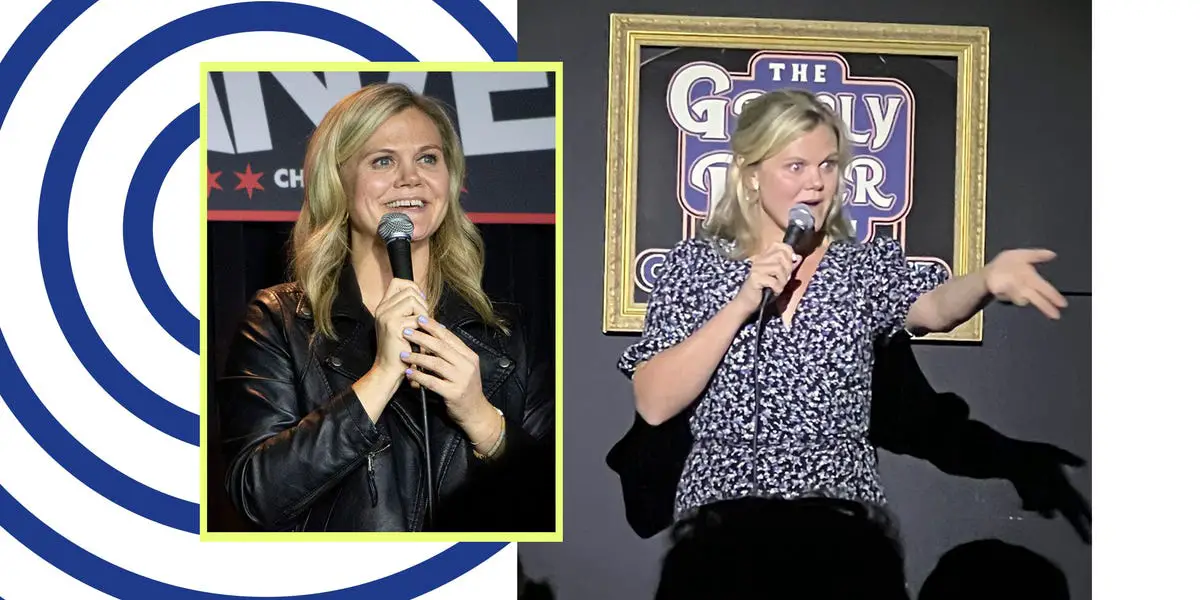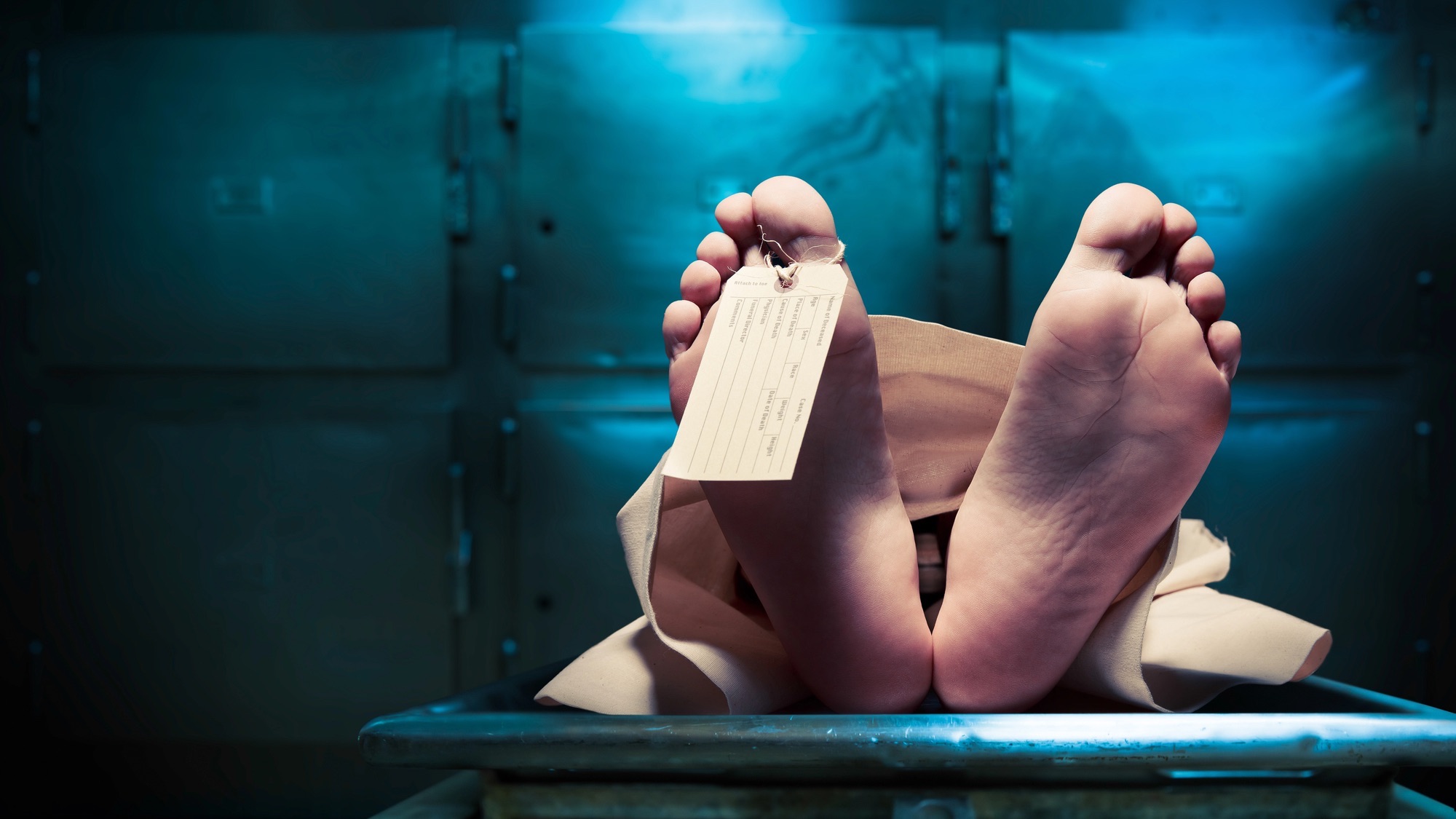When I was 29, I was babysitting a friend’s toddler. I accidentally took my eyes off him for a moment and found him with my beloved but filthy Tory Burch ballet flat in his mouth.
After I put him to bed, I noticed that the flats were in such bad shape: there were holes in the bottom of them. My chest started to feel heavy. What was in that apartment? Filthy? Urine? Medicines? Poison? Anthrax? What if he dies in his sleep from licking the flat?
I checked on him countless times while he slept until I came up with a perfect solution: I will lick the flats myself. That way, if I wake up tomorrow feeling good, I’ll know he did too, and if I don’t… well, we’re both doomed.
So I sat down and licked some old, dirty ballerinas. I knew on some level that this whole scenario playing out in my brain was probably my OCD.
I was diagnosed in college, but had done very little to control my OCD.
When I was first diagnosed in 2001, my first reaction was, “This is great. Monica on Friends has OCD, and she is so beautiful.” But then I realized that I was nothing like Monica, physically or behaviorally. I didn’t have a type A personality. I wasn’t a “neat freak” or a germaphobe, or any of the other stereotypical traits you see portrayed by characters with obsessive compulsive disorder (OCD), which, very broadly speaking, is a mental illness that causes you to experience unwanted thoughts and repetitive behavior. I was actually a bit messy. I never color matched my closet and I sat on toilet seats.
I quickly pointed this out to the therapist, but she explained that my obsessive-compulsive disorder was characterized by “intrusive thoughts with harmful consequences.” These types of unwanted thoughts can range from the fear that you have done something violent in nature, to the fear that you will not be able to control yourself if you commit a terrible act. That was not the mental illness I envisioned for myselfI thought.
She gave me a book called The OCD Workbook. I resonated with the examples shared in the book, but I never saw her again. I didn’t want to deal with therapy. I thought reading the workbook was enough.
As my twenties progressed, I finally began to understand the power that intrusive, damaging thoughts had over me.
Another example I’ll never forget was when my friends and I were interrogating about a weekend getaway, and a close friend expressed her concerns about drunkenly calling the guy she was dating.
“What if I told Pete I love him?” she joked.
What if I killed Pete? I thought.
My thoughts went away. Why would I kill Pete? I like Pete. But I was also drunk. We saw Piet. We swam with Piet. What if I don’t remember? What if he came back to my apartment? I must have killed him.
With a stomach ache, I ran back to my apartment and checked every inch of my 500 square foot apartment for Pete. Nothing. Maybe I got rid of the bodyI thought. I lived on the seventh floor and ran down the stairwell to see if Pete was there. Nothing. I went out of the building and looked in the dumpsters for any signs of Pete. Nothing. I then went to the laundry room and checked all 42 washers and dryers for Pete. Nothing. I’m not sure what I expected to find in a washer or dryer. Pete himself? Pete’s dirty laundry?
As I entered my apartment, scared and defeated, my phone rang. It was my friend. “Pete just called, we’re going out on Wednesday!” I was relieved to hear that Pete was still alive… but I knew that my obsessive compulsive disorder was also alive and well.
Gradually, I came face to face with the fact that OCD was affecting virtually every facet of my life.
Taking photos of my devices turned off and unplugged was a part of my daily life. It was routine to check and recheck that the car was in park, the doors were locked and the candles were blown out. Getting regular STD tests and unnecessarily taking Plan B from irrational, intrusive thoughts coded in health anxiety (yes, health anxiety is another common manifestation of the disorder) were monthly occurrences. Seeking reassurance from boyfriends ruined my relationships.
The thoughts can be all-consuming; it was often difficult to attend. If you have OCD, you constantly question your choices and create fictional stories that emphasize your values. It’s hard to know what’s real or not.
Fast forward to my thirties, after a particularly bad breakup, I took a class at the famous improvisational theater program The Second City called ‘Writing the Humorous Memoir’. It was there that I was bitten by the comedy bug and started performing storytelling and stand-up all over Chicago.
It took me some time to realize it, but comedy saved me.
When I was about to go on stage and perform, I had no time for reflection. I was faced with a real-life scenario and had one task: to make people laugh.
The more I focused on getting better at stand-up and my writing skills, the more my intrusive thoughts often died down. I was busy meeting new comics, listening to their sets and legitimately laughing the whole time. It slowly occurred to me that I was devoting less mental energy to my OCD each day.
I started talking about my OCD on stage. When I expressed my concerns out loud, they seemed even more irrational—and even hilarious. Every time I performed, I went out of my mind. I was living life in real time.
Despite the literal comic relief, OCD was still lurking around the corner, ready to attack at points, and I knew I had to make other changes as well.
I finally took the steps to find a therapist and seek treatment.
In the winter of 2020, I lied to my gynecologist to get HIV medication I didn’t need, in an unfounded panic that I could have somehow contracted it. At that moment I surrendered and decided to take action.
I started working with a therapist who specialized in OCD, who suggested outpatient treatment, which quickly changed my life. The program was four days a week, three hours a day. I was there for a month and during that time I worked with several therapists, participated in both group and individual therapy, and practiced exposure response prevention (ERP) therapy. In short, ERP is exposing yourself to your fears and learning not to react or act on them (i.e., becoming comfortable with not checking stairwells for Pete’s body).
Since completing the program, I have developed many useful coping skills and have become much better at fending off intrusive thoughts before acting on them. Now I only see my therapist every other week.
Today, I have a better understanding of my OCD than ever.
In 2023, I moved from Chicago to New York, where uncertainty seems to be the norm. I also started writing a one-woman show about my OCD after taking a workshop at The Barrow Group. (The currently untitled show should be ready in winter 2025.)
I know not everyone has OCD, but I do know that most people have experienced anxiety at some point. Perhaps anxiety has been making them feel uneasy or keeping them awake at night. I hope my show will calm fear for at least an hour by making people laugh, and help them learn that there are ways to deal with life’s uncertainty – and find humor in it too.
And maybe, just maybe, I can help someone else avoid ballerinas for dinner.






